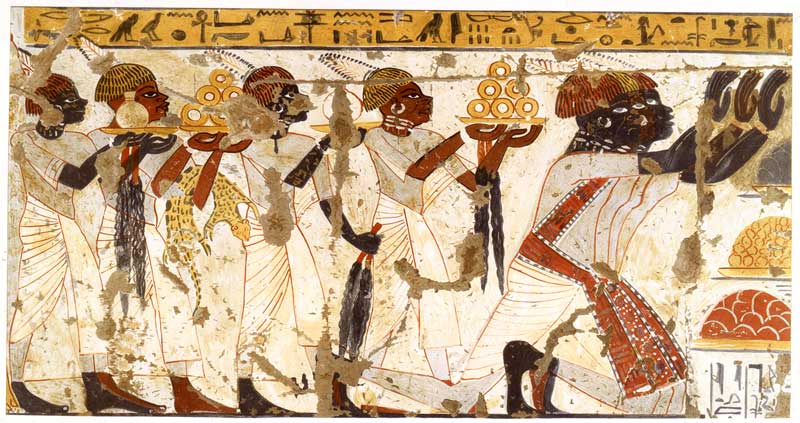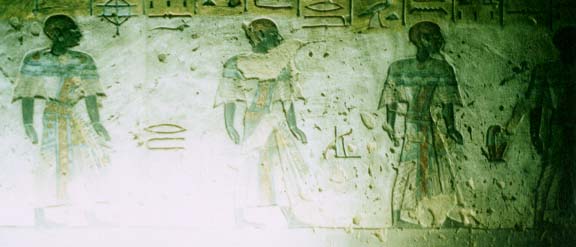Quote:
| In 1998, after reading Yurco’s “Two Tomb-Wall Painted Reliefs of Rameses III and Sety I and Ancient Nile Valley Population Diversity” in which he proclaimed that the “four races of man” pastiche used by many African-centred writers to demonstrate that the ancient Egyptians viewed themselves as a black people, is based on a nineteenth century copy that is incorrect, I informed Yurco that not only had I been in the tomb of Ramesses III but that I personally photographed the wall painting. He seemed somewhat surprised at the time. I invited him to view the photos at a training session for volunteers that I was conducting the following day at the Field Museum of Natural History . He did not show. Although we would occasionally see one another at the museum , nothing more was said about his article or my photographs, that is until the museum conducted another volunteer training session for the new Cleopatra exhibit which opened in October 2001. I saw Yurco at the first session and decided then and there that I would give him a copy of “The Unwrapping of Egyptology”, which was first published in the Kemetic Voice in 1999. The following week I did just that. I personally handed him a copy of the Kemetic Voice and asked him to read the article and to give me feedback. Amiably, he agreed. However, he did not show for the final training session. I do not know whether my article had anything to do with his absence, but I was reminded of the first time I tried to present him with this information in 1998. Finally an opportunity presented itself during a walk-through of the Cleopatra exhibit. As I stood near the exit of the exhibit, I saw Yurco explaining certain aspects of the exhibit to a group of volunteers. I positioned myself so that it was virtually impossible for him to pass without seeing me. To my amazement, Yurco scurried right past me without uttering one word. I literally ran after him. Fortunately, there were two other members of the Kemetic Institute present to witness this encounter. When I caught Yurco and asked him what he thought about the article, the first thing he said was “I still maintain that it is a pastiche.” It was obvious from his statement that he had read the article. I again agreed with him on that point and pressed him further with regard to the contents of the pastiche and my photographs. In other words, were the ancient Egyptians as depicted in the tomb of Ramesses III shown in the same skin colour and dress as the Kusheeites? Still walking hurriedly and looking quite ill at ease Yurco finally conceded that the depiction of the ancient Egyptians in the tomb of Ramesses III shows them to have the same black skin colour and dress as the Kusheeites. When asked if this was a valid representation of the ancient Egyptians, Yurco again conceded. ‘ (p34).'The Battle for Kemet' Charles A.Grantham |
Ancient Egyptians did portray themselves and nubians often of the same color. Ramsess iii tomb

Portrays egyptians as black on the far left
Ancient Greeks believe the ancient egyptians were black according to historian basil davidson
http://www.youtube.com/watch?feature...&v=FciCAXYWx3s
Nubians

Egyptians

Pharaoh Amunhotep III

Egyptians, hieroglyphs state the best of humanity

Egyptians

Manu Ampim photo of 4 Egyptians ("Rmt") in tomb KV 11, 1994:




No comments :
Post a Comment
Note: only a member of this blog may post a comment.